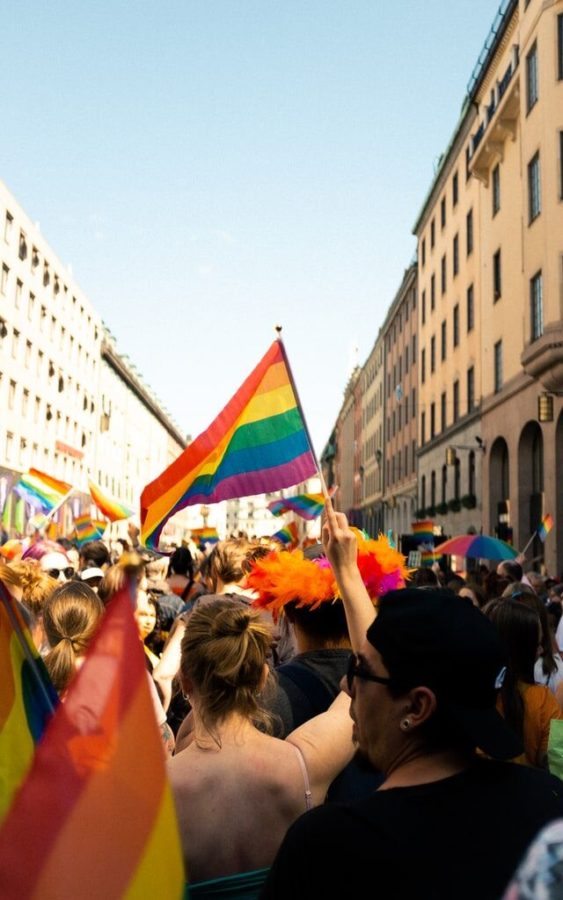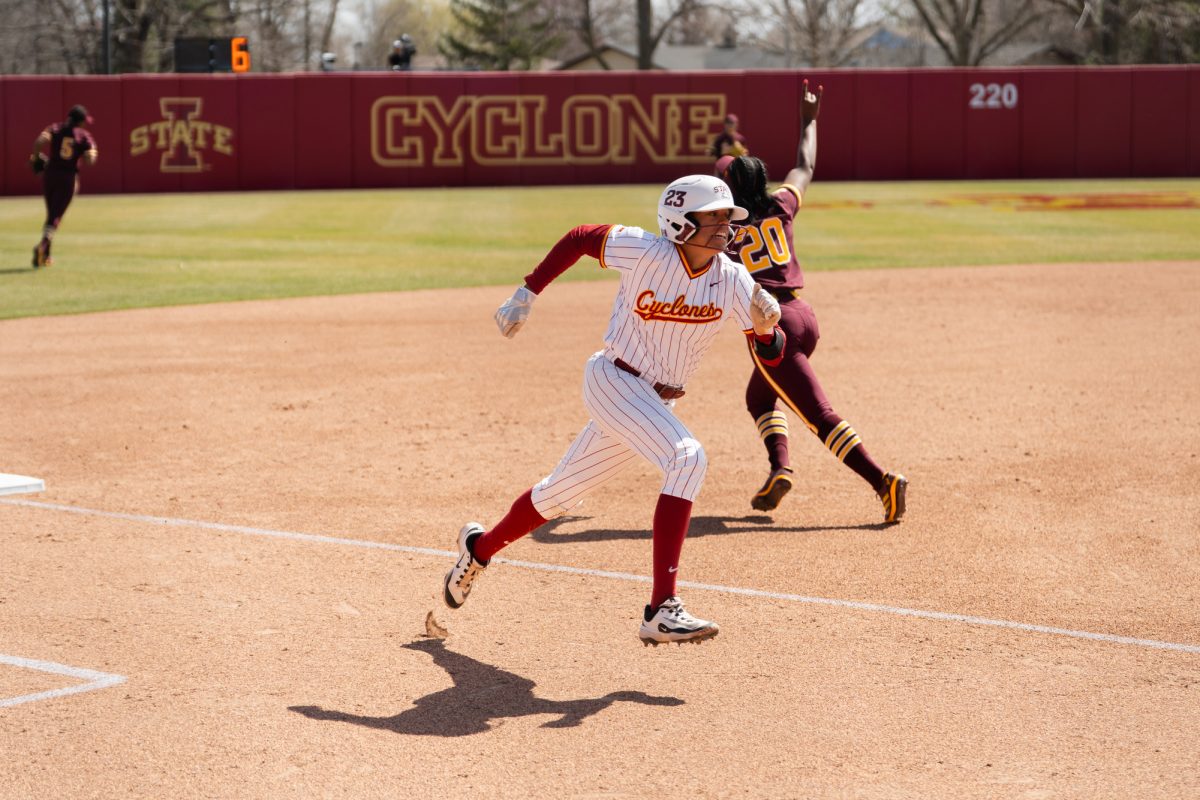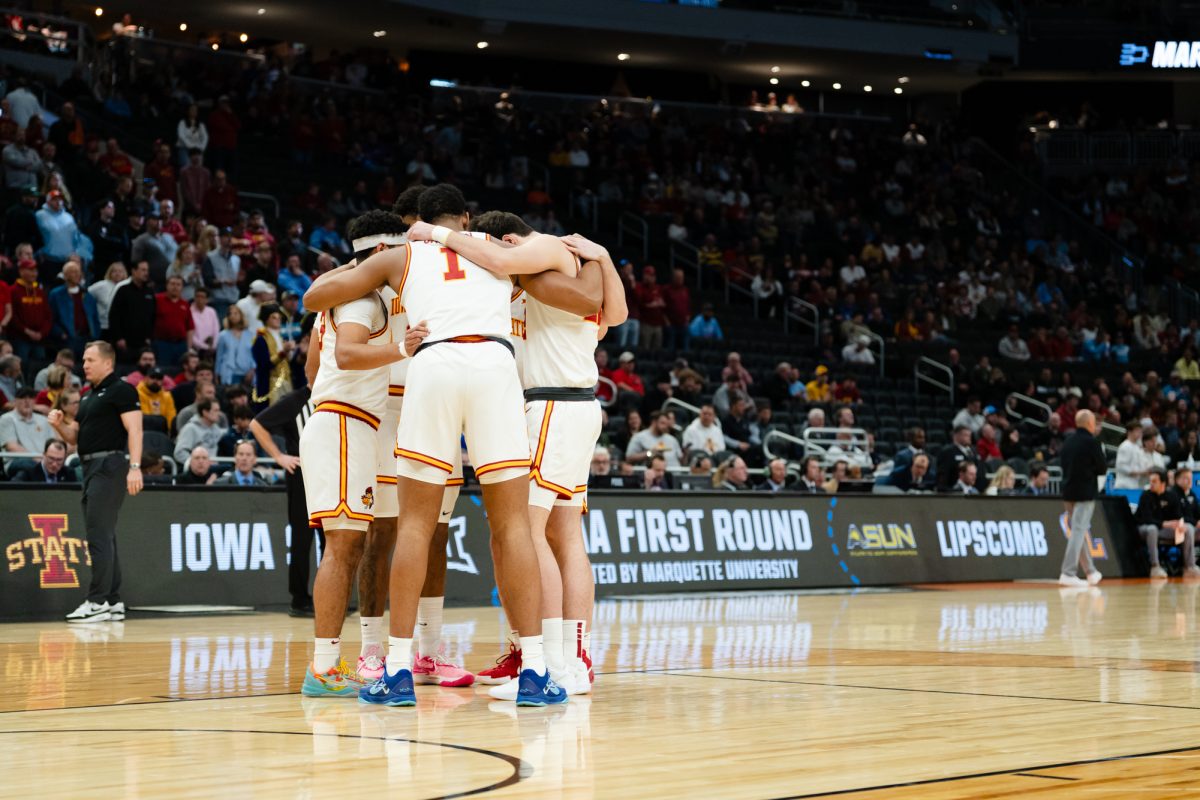National Coming Out Day: why it’s important and what it means to come out
October 10, 2021
Iowa State students and faculty agree that identifying within the LGBTQIA+ community has affected their lives drastically. From their family relationships to working conditions to everyday conversations, coming out has changed their lives.
For Hollie Wilson, bullying caused her to come out before she was ready. In George Archer’s situation, coming out to family was much easier than his community knowing the truth. In Andra Castle’s case, even though they never officially came out, they have to come out in multiple ways every day. While all coming out stories are unique, according to Wilson, Archer and Castle, they are all important.
Oct. 11 is a designated day to celebrate the importance of coming out and what it means to come out. According to APA, founded in 1988 by Richard Eichberg, a psychology professor, and Jean O’Leary, an activist, National Coming Out Day is meant to raise awareness for the LGBT community and its civil rights movement. APA said Eichberg and O’Leary chose Oct. 11 of the second major National March on Washington for Lesbian and Gay Rights, which took place one year prior in 1987.
Here are three stories on coming out, its importance and how coming out is not a one-time event, but how it is a continual action that takes place every day.
George Archer, assistant professor of philosophy and religious studies:
I came out for the first time in 1994 when I was 14 years old. I was quite lucky compared to most other people in my generation. My family was very religious but in a progressive and loving way. There was no drama, no broken relationships, no serious judgment from any relative at all. Just love and the repeated claim that everyone always knew about me anyway. I specifically remember my grandmother quipping after I came out to her, ‘Oh honey, we have friends outside this house, you know.’ And that was that.
Beyond my family was a very different matter. There was still more or less no representation of LGBTQ+ people in the major media. In the very year I came out, IKEA produced the first commercial with a gay couple in it; my local Ikea was then closed over bomb threats. Gay establishments still had bars on the windows, and most were quasi-secret for the patrons’ safety. The first time I ever held a man’s hand in public we had a bottle thrown at us. I lost almost every friend in school when I came out. Rumors about my queerness spread and more than a few times I was called into teachers’ offices to discuss my’ issues.’ In tenth grade, a teacher told me I was going to hell. In eleventh, my English teacher called me a f*g in public. In twelfth, my art teacher told me that I wasn’t gay; I was just confused and then asked me to leave class to reflect. I then had to explain to a counselor that I was not being abused at home. This pattern continued into college and graduate school. When I got married to my now-husband during my last year of doctoral work, a professor I had considered a friend said that my life was ‘an abomination.’ And now, as a professor myself, I keep a mental list of professors who I cannot work with (or will not work with me).
Sadness aside, I am more grateful for the progress we have made towards equity for LGBTQ+ people than I could possibly explain. Even though we have so much further to go, the cultural change between the 1990s and now is palpable. I used to assume (correctly) that most people were homophobic; now, I assume (correctly) that most people are not. But the great work continues. My professional interests have little to do with sexuality, but when, on occasion, I out myself to students for whatever reason, inevitably, my office hours become the site of stories about trauma and fear. I never ask the question, but I often wonder to myself when LGBTQ+ students come to speak to me if I am the first openly queer adult they have ever met.
Hollie Wilson, senior in psychology:
When I came out to my parents, it was because I was forced to because of a serious bullying incident at school where someone had slashed my tires for me being out as a lesbian. I was terrified my stepdad would kick me out, and I would have nowhere to go. So, to officially come out, I wrote a note to my mom saying that I loved her and that I am a lesbian. I finished it with, ‘Please don’t tell stepdad I’m gay.’ I put it in the book she was reading as a bookmark and headed to school. Halfway through second period, I received a text message saying, ‘I love you no matter what and I won’t tell stepdad.’ When I got home from school, we sat down together, and she asked me questions, like am I sure I’m gay and it’s not a phase, am I in a relationship with my best friend, and some other ignorant, stereotypical questions. I was a sophomore in high school, and I don’t think she took it seriously until I brought home a girlfriend as my prom date my senior year. That’s also when my stepdad found out; can’t really hide the whole female prom date picture session in our living room from him. Thankfully he handled it well, and I wasn’t kicked out.
To me, it was important because it was something I felt I had to hide constantly at home, and it was killing me to keep that secret. I struggled with really heavy depression and had even attempted suicide at one point because of the bullying and secret-keeping. I feel like everyone deserves to feel safe in their home and to be themselves; no one should have to hide from the world. Another thing important about coming out is being able to find other people in the LGBT community to be friends with and support each other, to have friends that get it and to advocate for others and make others feel comfortable to be themselves as well. I love meeting other LGBT people and being a part of such a loving community.
Andra Castle, assistant director for the Margaret Sloss Center for Women and Gender Equity:
To me, National Coming Out Day is a day to recognize LGBTQIA+ folks that are out publicly and to encourage sharing of stories. I think that the underlying assumption is that everyone is straight, that everyone is cisgender or falls neatly within the gender binary, that there is one way to come out as LGBTQIA+, and that we all have generally the same experience with gender, sexuality. In all honesty, no one has the same experience of life. No one knows what identities you hold unless you tell them, and coming out is a way to share that with others.
In my mind, I’ve never actually ‘came out.’ I am not an unusual person. I think it is a common misunderstanding that there is one big coming out event in life. Being either out or in is a very binary concept and not a good reflection of anyone’s life, especially mine. My coming out has been thousands of little statements and millions of small things that have all affected my lived experience differently. It is every time I share my pronouns in meetings and multiple times a day at work. It’s what restroom I use. It’s asking people to refer to me in a certain way in restaurants, with telemarketers, the dentist, the doctor’s office. It’s access to healthcare and basic treatment. I come out at every single family function, and every time I am out with friends. I come out with every post on social media. Coming out is many things. Coming out to myself, acknowledging the expansiveness of my gender and sexuality was the most rewarding and momentous coming out, and I prefer to keep that with myself and carry it with me always. Coming out to others is a bit more calculated, in my experience, because it is so continuous and yet so gradual. It is asking to be seen, to be acknowledged, to be loved, and that changes constantly. I recognize my privilege in living publicly and openly as a member of the LGBTQIA+ community. Yet, sometimes I don’t come out when I don’t feel safe, when I don’t feel like being seen, when I am too tired to educate others, and that is a privilege too.
More information on National Coming Out Day and how to celebrate on campus can be found here.







